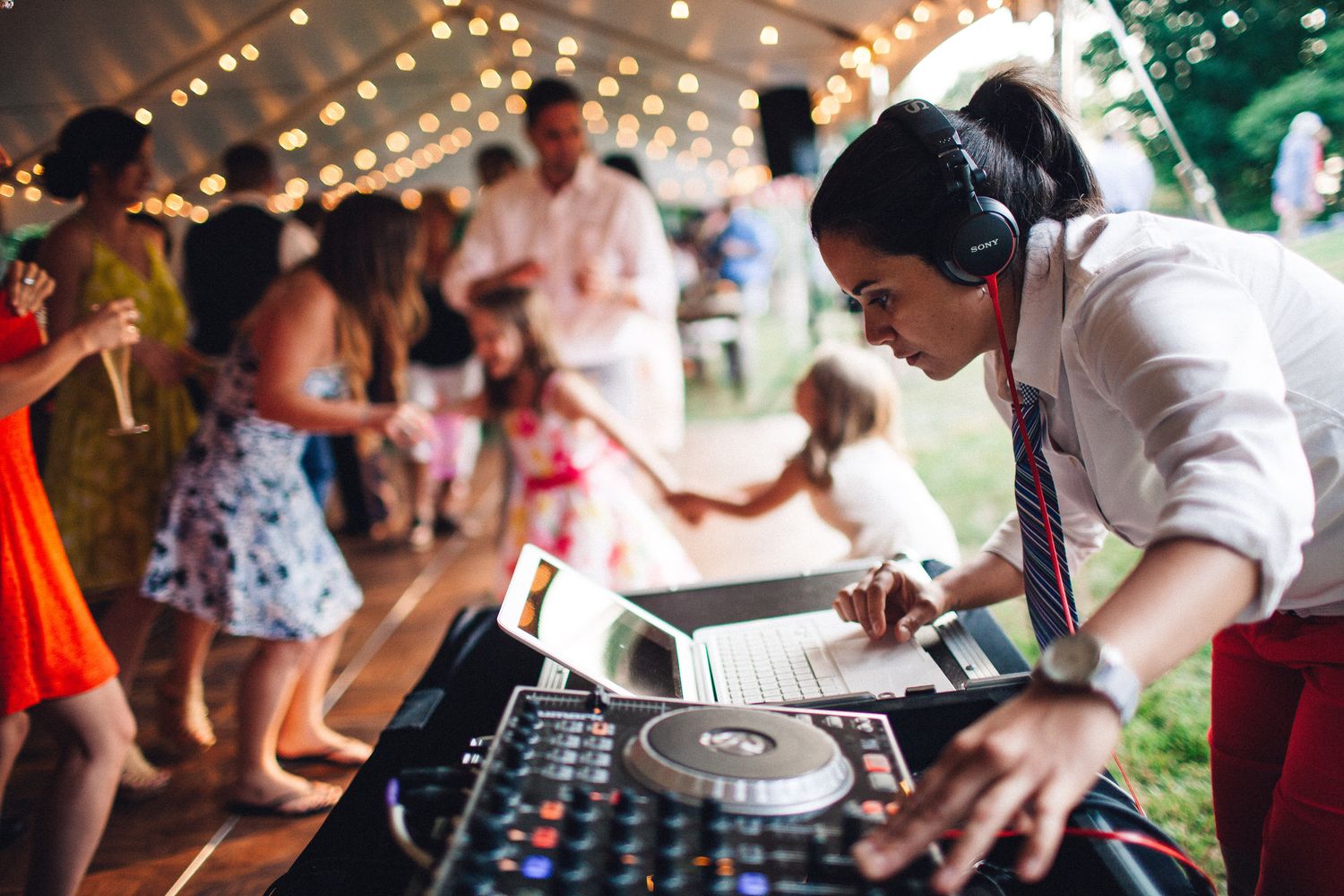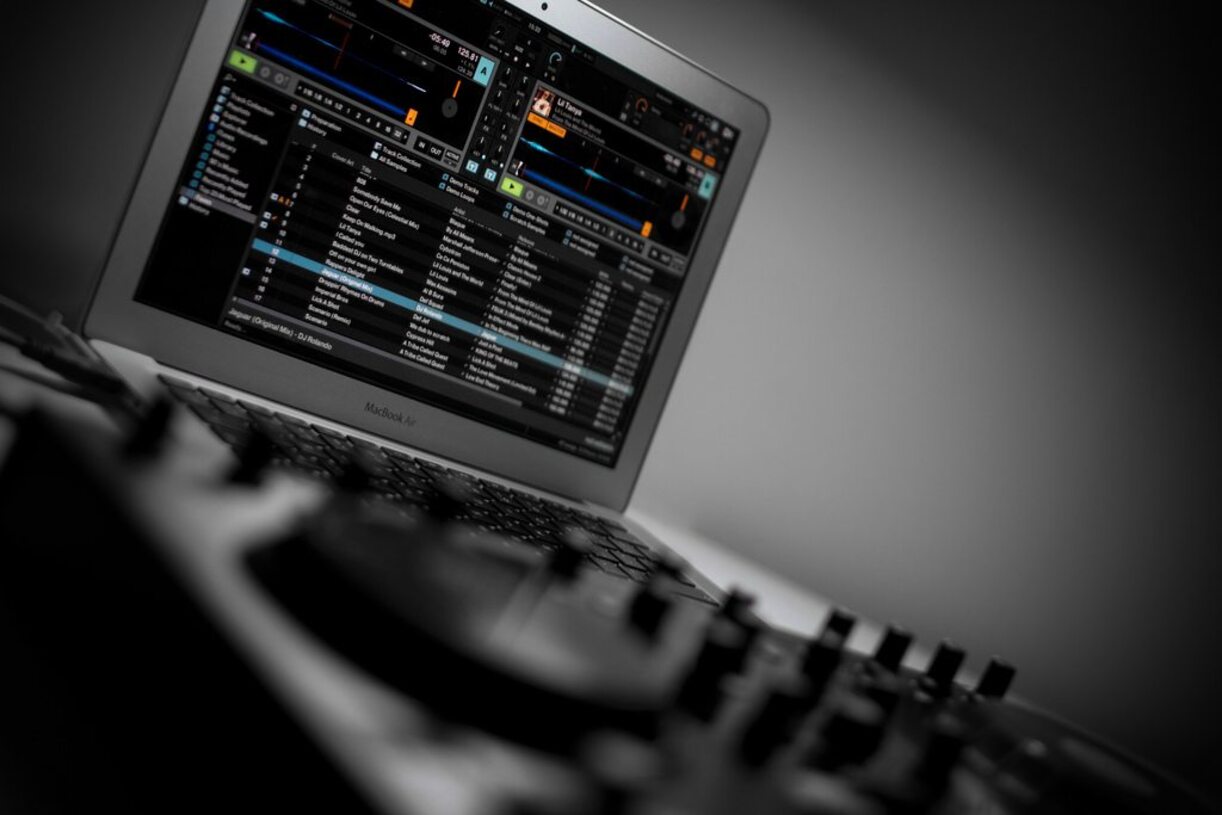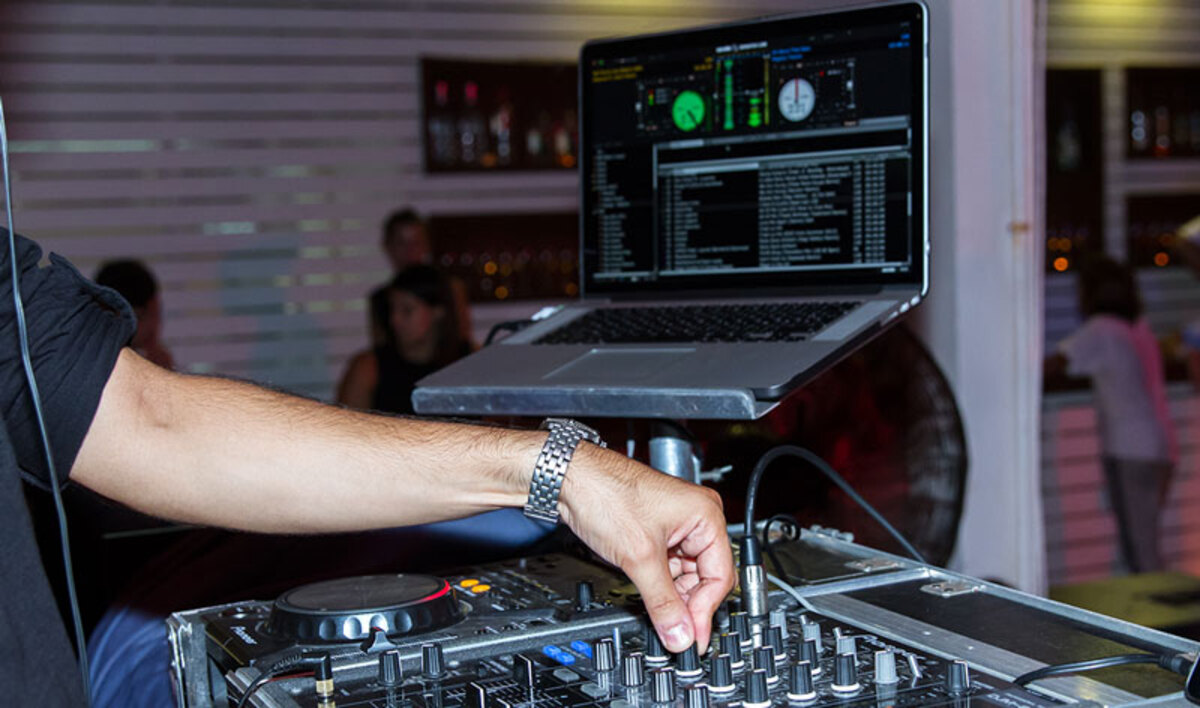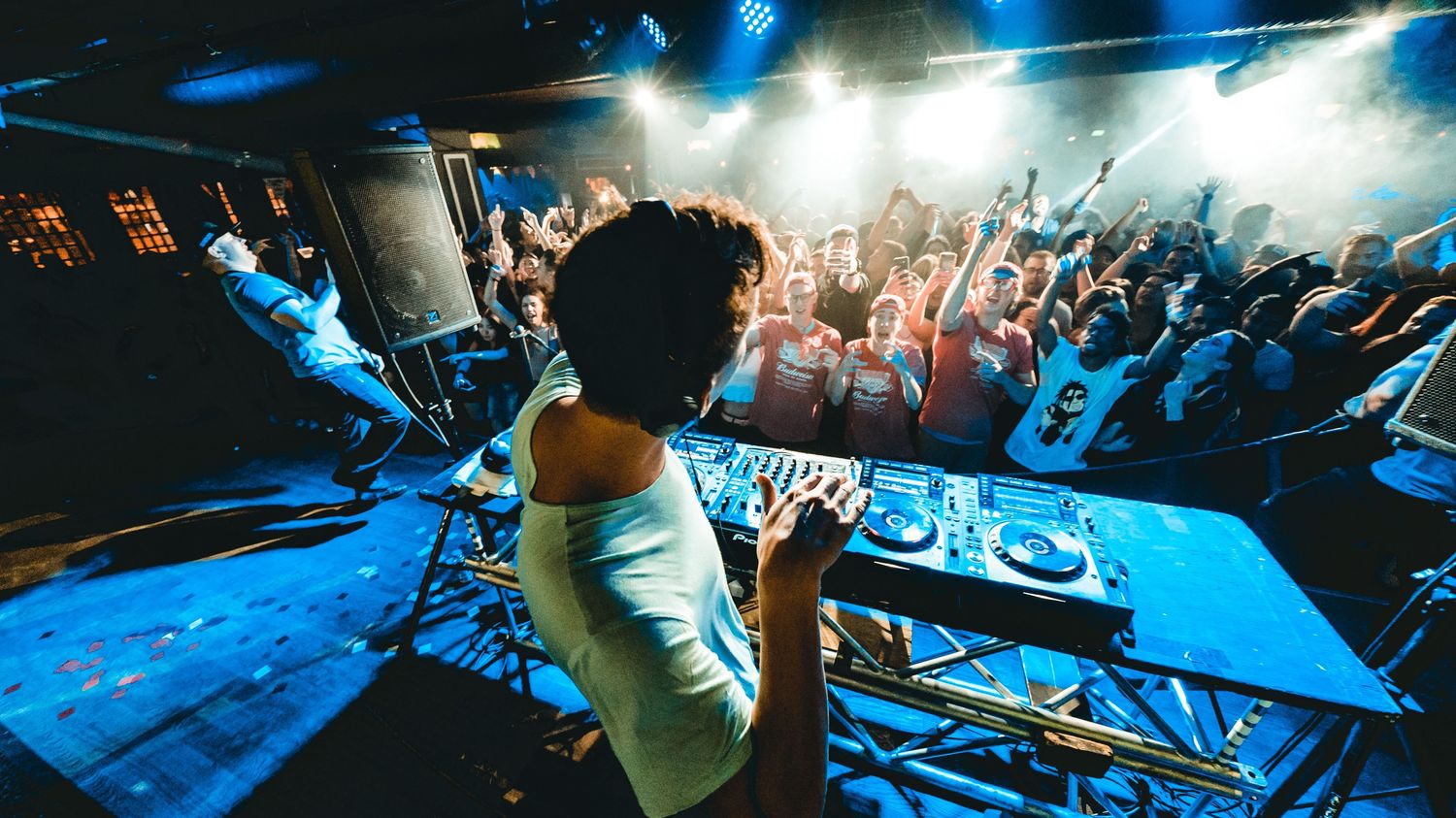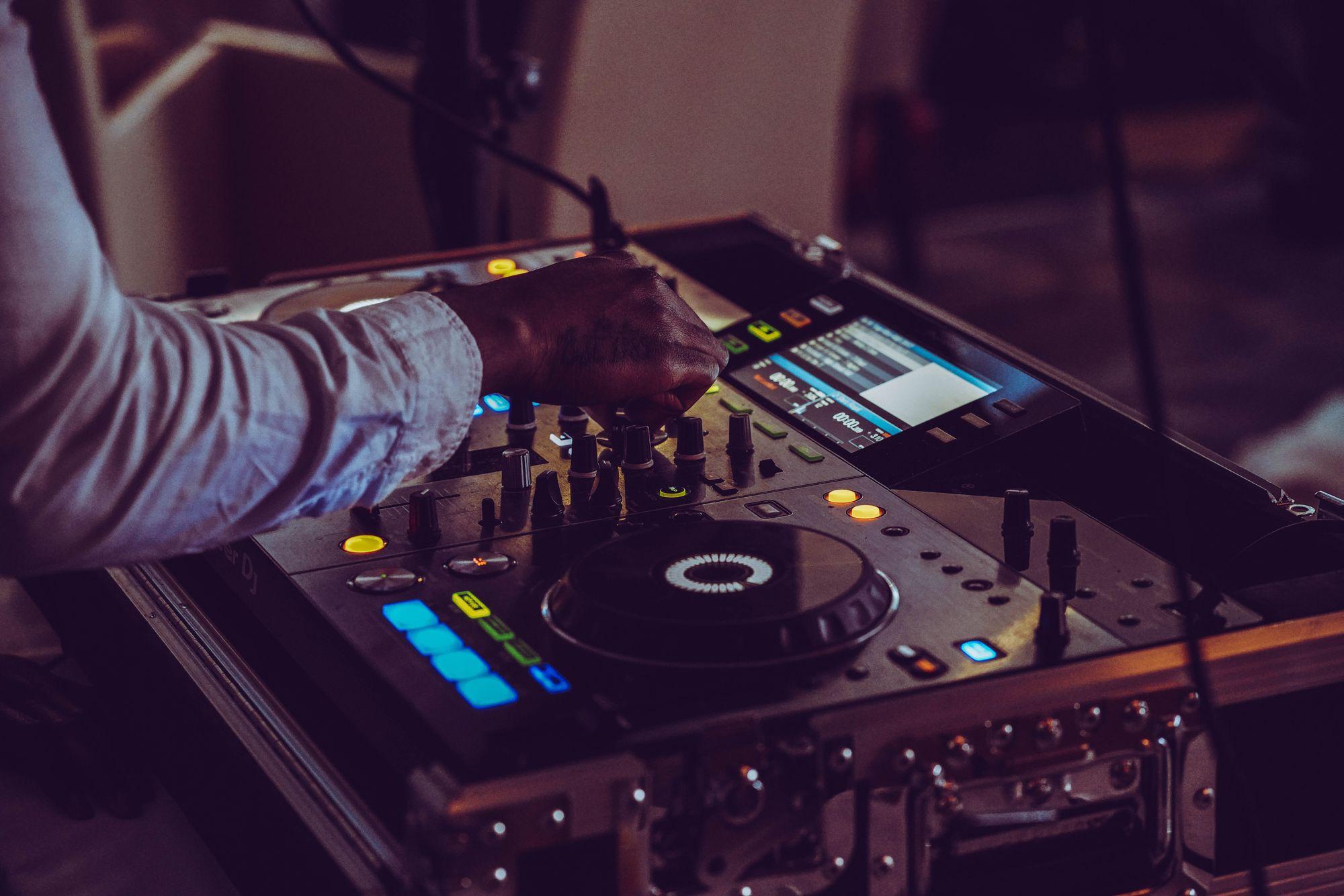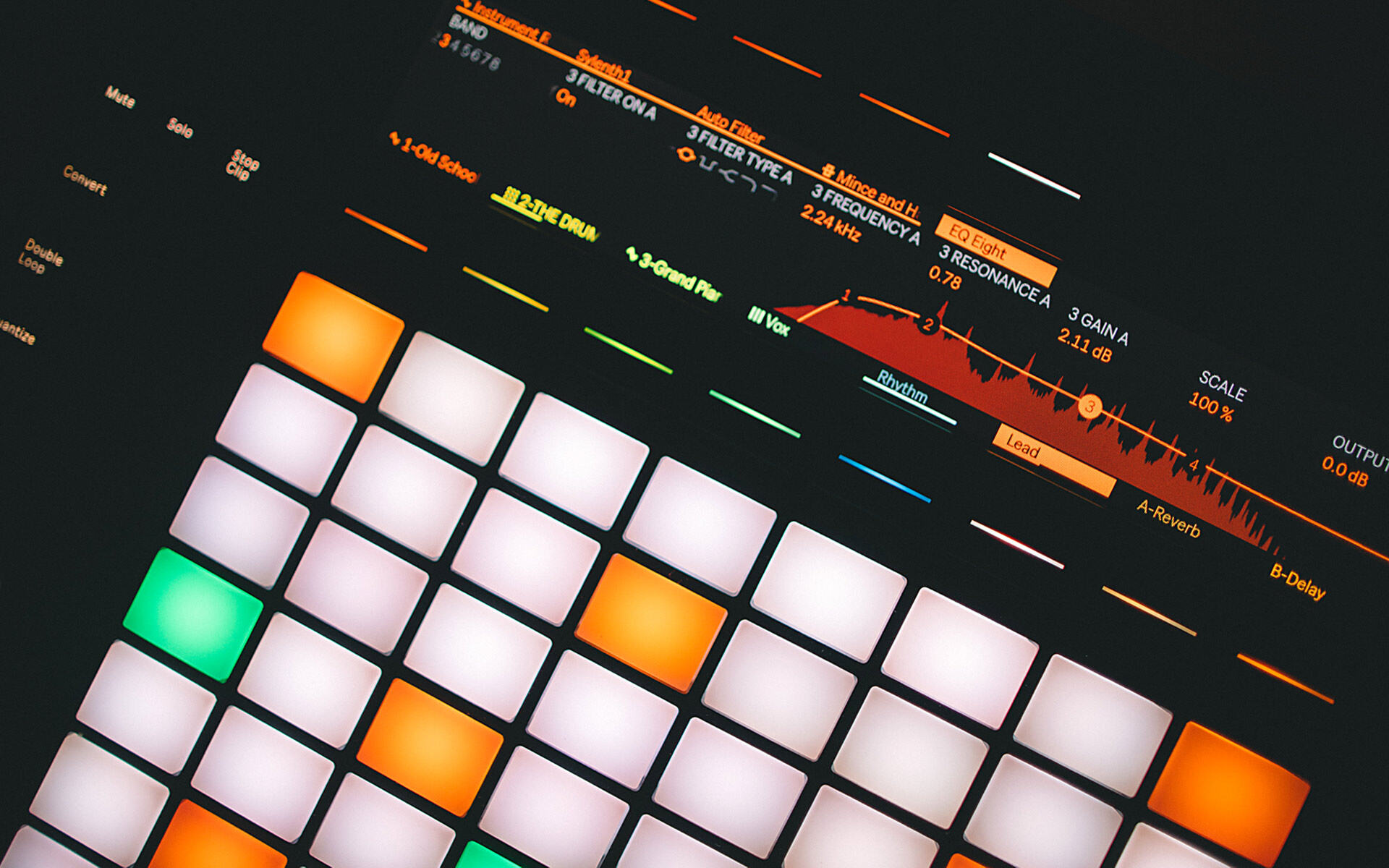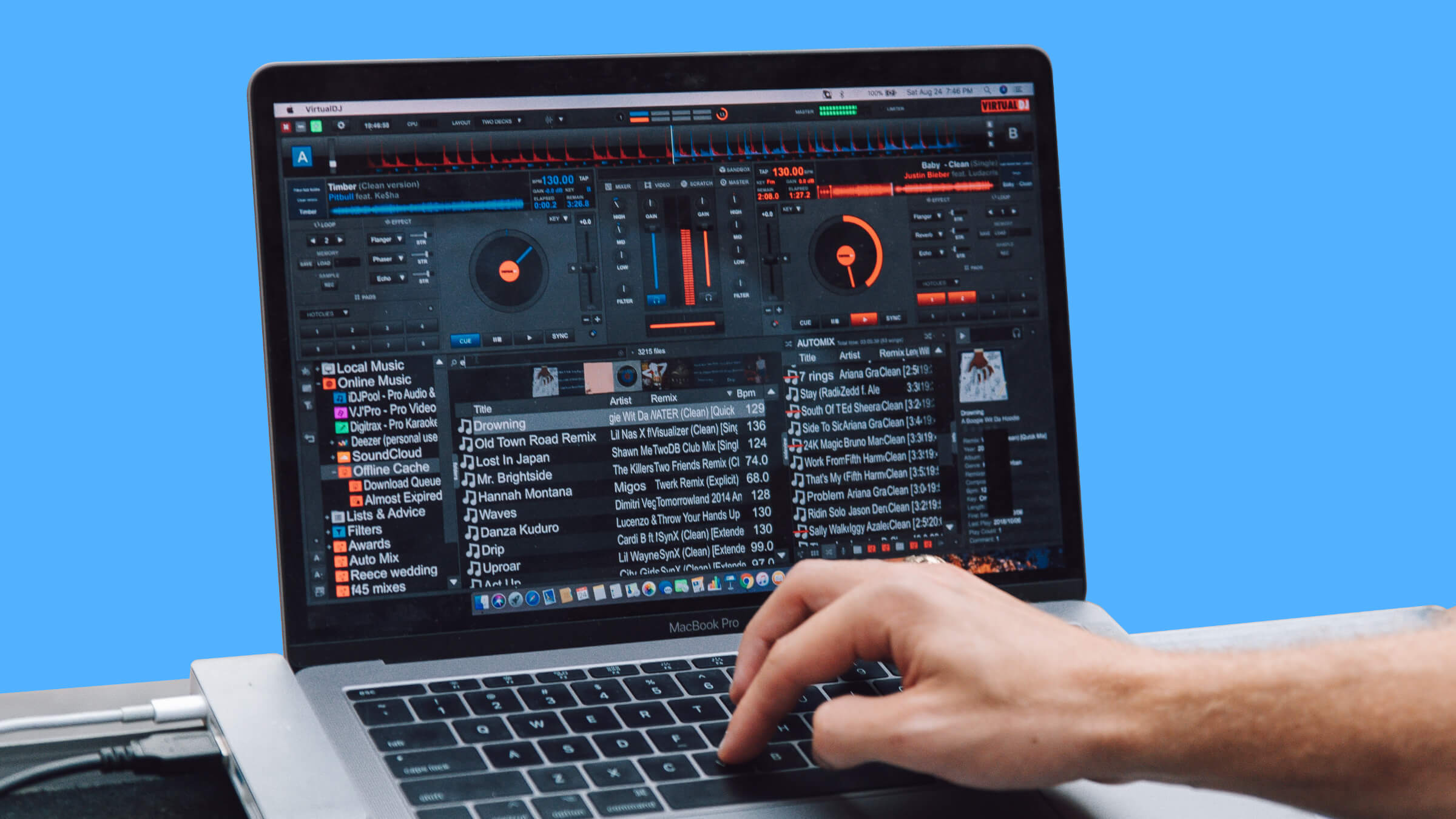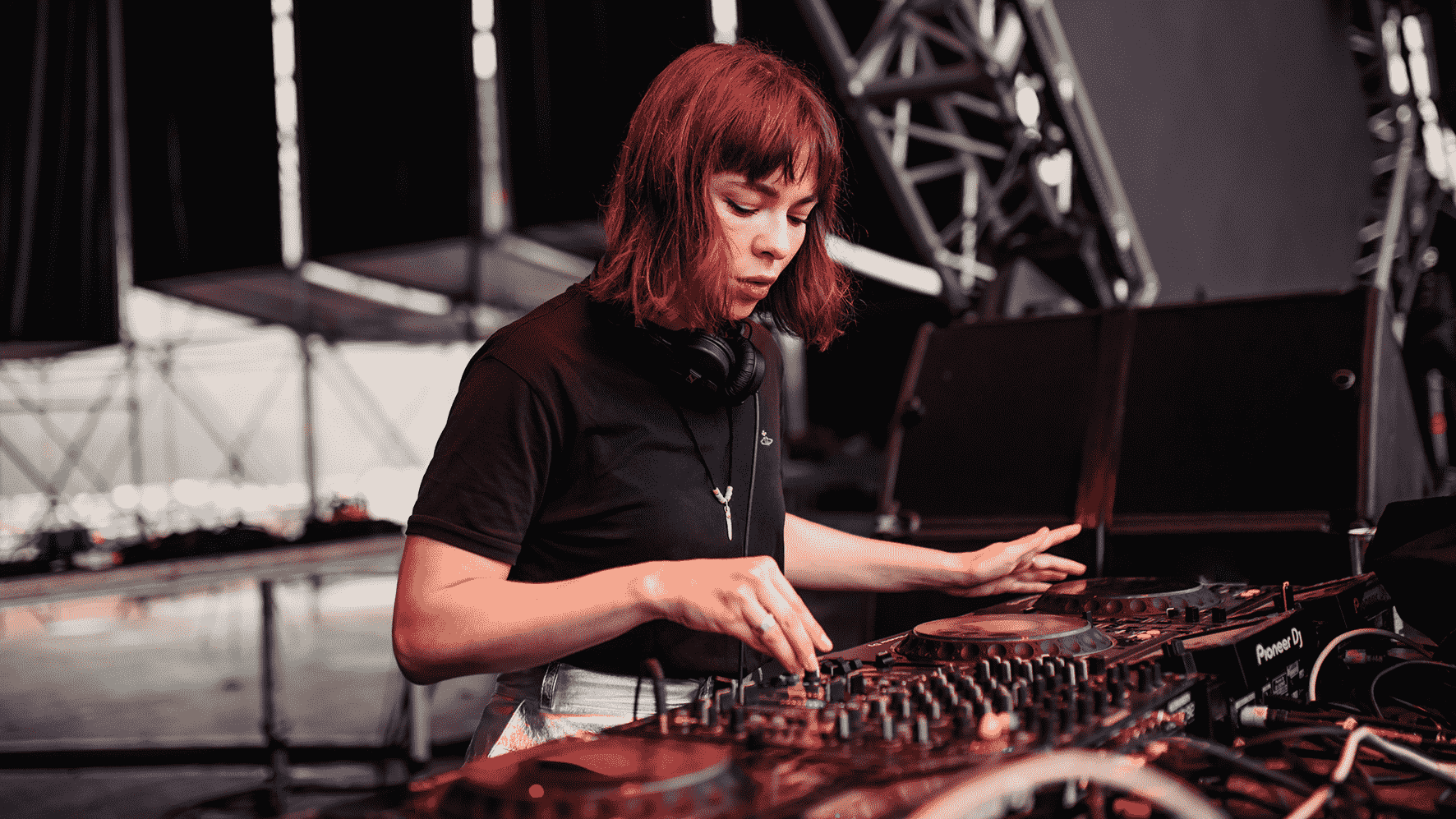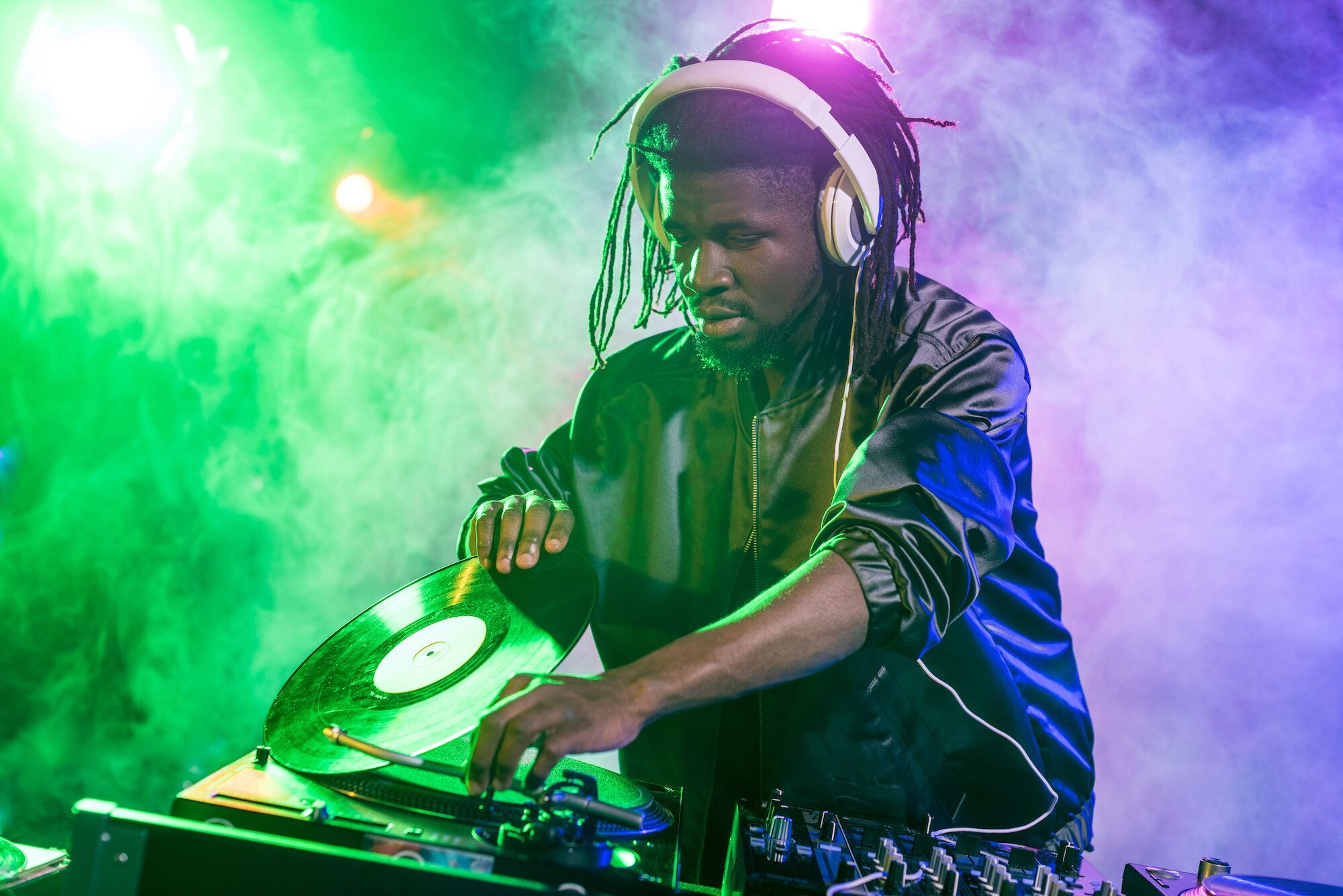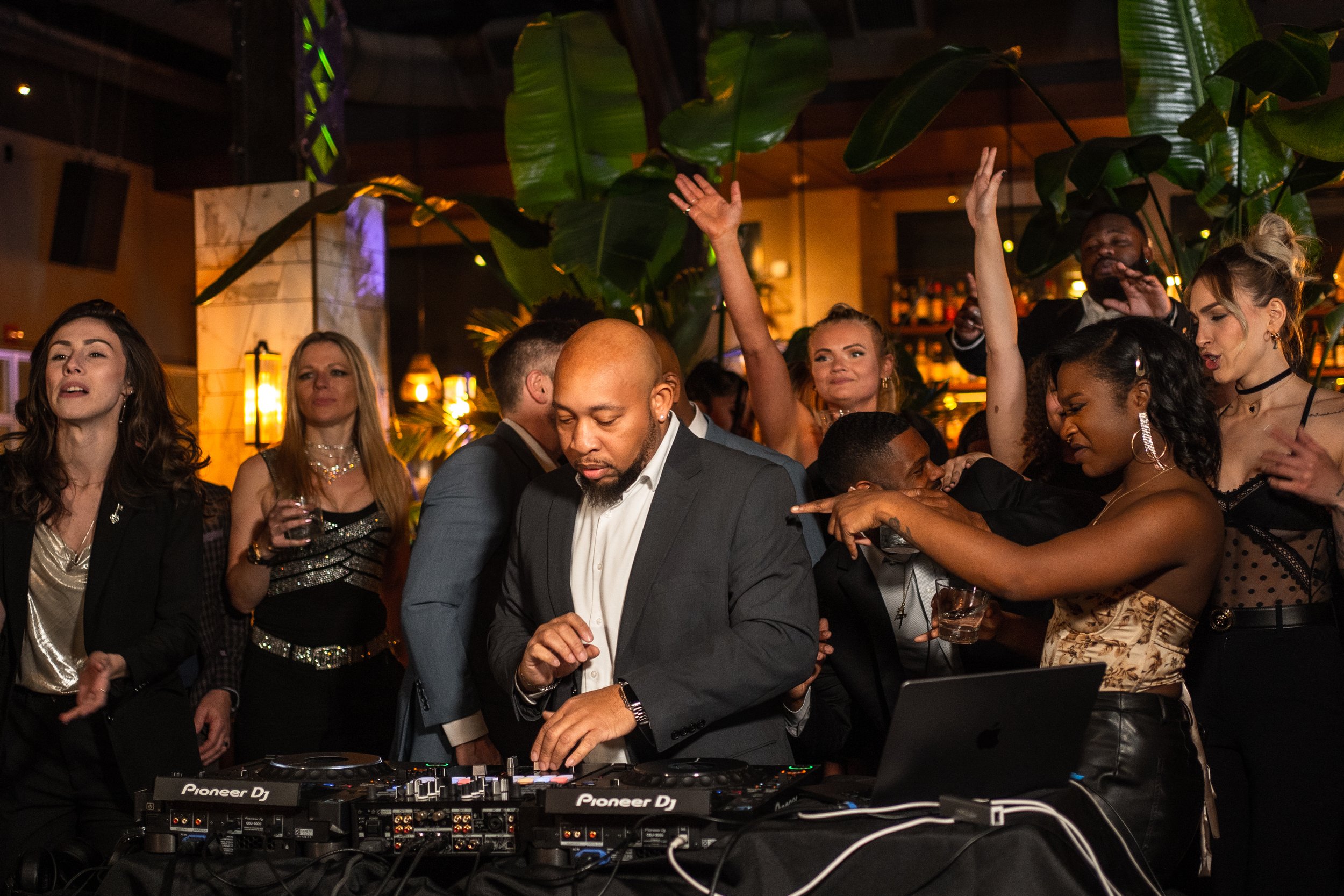Home>Production & Technology>DJ>How To Book A DJ
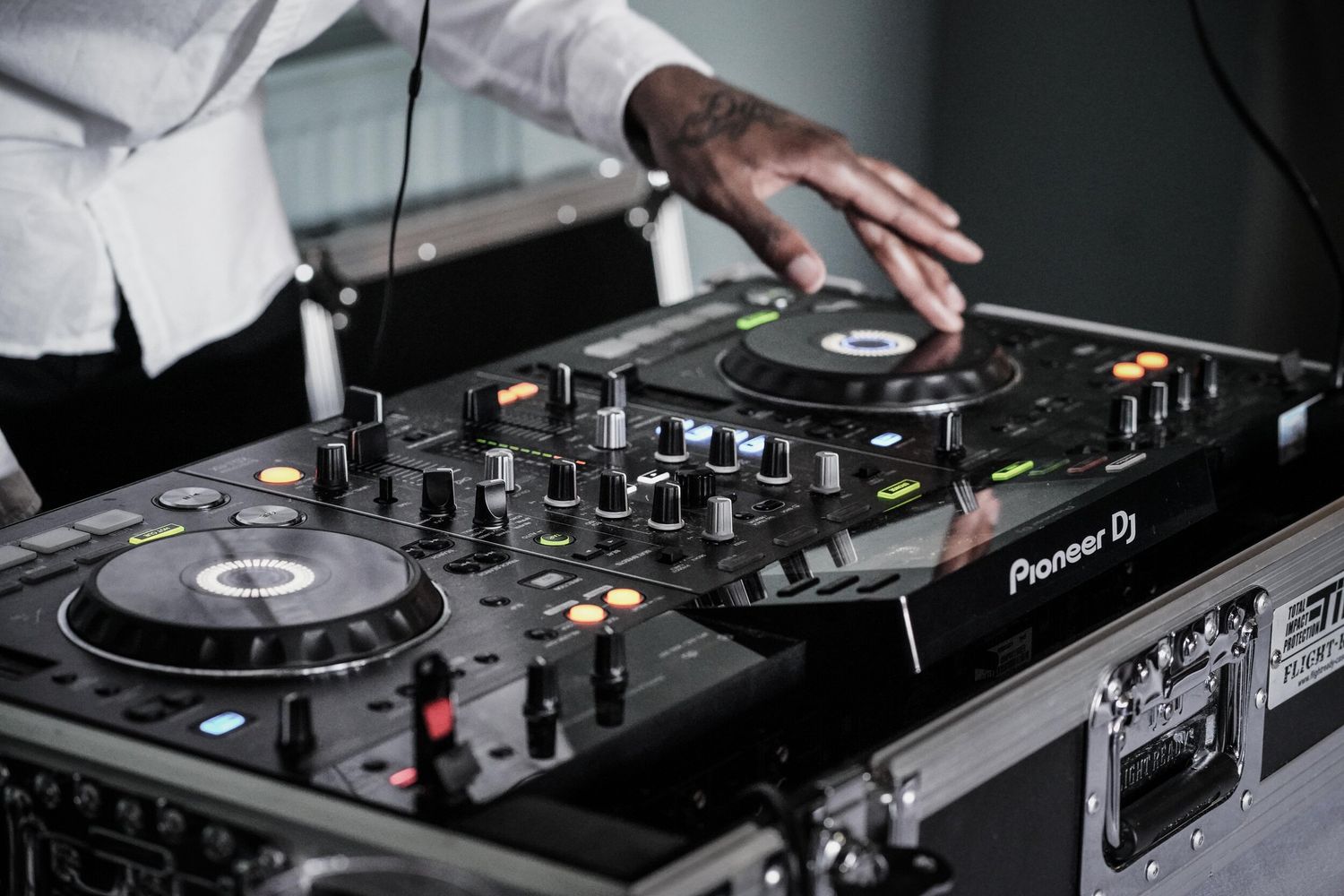

DJ
How To Book A DJ
Published: March 3, 2024
Learn how to book the perfect DJ for your event. Find the best DJs and hire the right one to make your event unforgettable.
(Many of the links in this article redirect to a specific reviewed product. Your purchase of these products through affiliate links helps to generate commission for AudioLover.com, at no extra cost. Learn more)
Table of Contents
Finding the Right DJ for Your Event
Finding the perfect DJ for your event is crucial to creating an unforgettable experience for your guests. Whether you're hosting a wedding, corporate event, or private party, the right DJ can elevate the atmosphere and keep the energy high throughout the night. Here are some essential steps to help you find the ideal DJ for your event:
-
Define Your Event's Style and Atmosphere: Before you start your search, take some time to define the style and atmosphere you want to create at your event. Consider the type of music that will resonate with your guests and the overall vibe you want to achieve. Whether it's a laid-back lounge ambiance or a high-energy dance party, having a clear vision will guide you in finding a DJ who can bring your ideas to life.
-
Seek Recommendations and Research Online: Ask for recommendations from friends, colleagues, or event planners who have experience working with DJs. Additionally, utilize online resources such as social media, event planning websites, and DJ directories to explore potential candidates. Pay attention to reviews, testimonials, and sample mixes to gauge the DJ's style and professionalism.
-
Evaluate Experience and Versatility: Look for a DJ with a diverse portfolio and experience in handling events similar to yours. A versatile DJ who can seamlessly transition between different music genres and cater to diverse audiences is a valuable asset. Assess their ability to read the crowd and adapt to the event's dynamics to ensure a smooth and enjoyable experience for everyone.
-
Schedule Interviews and Demos: Once you've shortlisted potential DJs, schedule interviews or virtual meetings to discuss your event's details and gauge their personality and communication style. Request demo mixes or recordings of their live performances to assess their mixing skills, music selection, and crowd interaction. A DJ's ability to engage the audience and maintain a vibrant atmosphere is as important as their technical proficiency.
-
Discuss Logistics and Equipment: Inquire about the DJ's equipment, setup requirements, and any additional services they offer, such as lighting or sound enhancements. Clear communication regarding logistical aspects will help you anticipate any potential challenges and ensure a seamless setup on the event day.
-
Trust Your Instincts: Ultimately, trust your instincts when selecting a DJ. A genuine connection and mutual understanding of your event's vision can make a significant difference in the overall outcome. Choose a DJ who not only meets your technical requirements but also resonates with your event's atmosphere and values.
By following these steps, you can find a DJ who aligns with your event's vision and delivers an exceptional musical experience that resonates with your guests, leaving a lasting impression.
Booking Process and Communication
Once you've found the perfect DJ for your event, the next crucial step is to initiate the booking process and establish clear communication to ensure a seamless experience. Effective communication and a well-defined booking process are essential in setting the stage for a successful collaboration. Here's a detailed look at the booking process and the significance of open communication:
Initial Contact and Availability
Upon identifying your preferred DJ, reach out to them promptly to inquire about their availability for your event date. Clearly communicate the event details, including the date, time, location, and expected duration. Providing comprehensive information at the outset allows the DJ to assess their availability and determine if they can accommodate your event.
Discussing Event Requirements
Engage in detailed discussions with the DJ regarding your event's specific requirements and expectations. Share your vision for the music, ambiance, and any special requests or thematic elements. Clear communication about your preferences, including specific genres, must-play and do-not-play lists, and any unique performance aspects, enables the DJ to tailor their services to align with your vision.
Contract and Terms
Upon mutual agreement on the event details and services, the DJ will typically provide a contract outlining the terms and conditions of the engagement. Review the contract thoroughly and ensure that it encompasses all agreed-upon elements, including performance duration, setup and breakdown times, equipment provisions, and fee structure. Any special requests, such as customized playlists or additional lighting, should be clearly articulated in the contract.
Deposit and Payment Schedule
Most DJs require a deposit to secure the booking. Discuss the deposit amount and payment schedule with the DJ to ensure mutual understanding and adherence to the payment terms. Clarity on payment expectations and deadlines prevents any misunderstandings and contributes to a transparent and professional working relationship.
Open Lines of Communication
Throughout the booking process, maintain open lines of communication with the DJ. Address any queries or concerns promptly and be receptive to their input and suggestions. A collaborative approach fosters a positive working dynamic and allows for the seamless alignment of expectations.
Confirmation and Follow-Up
As the event date approaches, confirm the details with the DJ to reiterate the timeline, logistics, and any updates. Clear communication in the lead-up to the event helps to mitigate last-minute issues and ensures that both parties are fully prepared for the performance.
By prioritizing effective communication and diligently navigating the booking process, you can establish a strong rapport with the DJ and lay the groundwork for a successful event. Clear and open communication fosters a collaborative partnership, ensuring that the DJ delivers a tailored and exceptional experience that aligns with your event's vision.
Understanding Contracts and Fees
When booking a DJ for your event, understanding the contractual and financial aspects is crucial for a transparent and harmonious collaboration. The contract serves as a foundational document that outlines the terms, responsibilities, and expectations of both parties, while the fee structure delineates the financial arrangements for the DJ's services.
Contractual Clarity
The contract provided by the DJ is a legally binding agreement that safeguards the interests of both you, as the client, and the DJ. It typically includes essential details such as the event date, performance duration, setup and breakdown times, and the DJ's responsibilities. Additionally, the contract may specify any special requests or unique elements, such as themed performances or customized playlists, ensuring that all agreed-upon aspects are clearly articulated.
Understanding the contractual obligations is imperative to avoid misunderstandings and discrepancies. Take the time to review the contract thoroughly, seeking clarification on any clauses or terms that may require elucidation. If there are specific requirements or modifications you seek, communicate them to the DJ to ensure that the contract accurately reflects your expectations.
Fee Structure and Payment Terms
The fee structure outlined in the contract encompasses the financial arrangements for the DJ's services. It typically includes the total fee, deposit amount, payment schedule, and any additional costs for supplementary services, such as lighting enhancements or extended performance duration.
Understanding the fee structure allows you to plan your budget effectively and ensures transparency in financial dealings. Prior to signing the contract, discuss the fee components with the DJ to gain clarity on the deposit amount, payment deadlines, and any potential additional expenses. Clear communication regarding the financial aspects fosters mutual understanding and prevents ambiguities related to the payment terms.
Legal Safeguards and Professionalism
The contractual agreement not only delineates the logistical and financial aspects but also serves as a legal safeguard for both parties. It establishes a professional framework that governs the engagement, fostering accountability and adherence to the agreed-upon terms.
By comprehending the contractual and financial intricacies, you can navigate the booking process with confidence and assurance. Clarity on the contractual obligations and fee structure contributes to a professional and transparent collaboration, ensuring that both you and the DJ are aligned in your expectations and commitments.
In essence, understanding the contracts and fees is pivotal in establishing a solid foundation for the DJ-client partnership, laying the groundwork for a successful and harmonious event experience.
Preparing for the Event
As the event day approaches, thorough preparation is key to ensuring a seamless and memorable experience for both you and the DJ. Effective preparation encompasses various aspects, ranging from logistical arrangements to finalizing the music selection and event-specific details. Here's a comprehensive guide to preparing for the event and maximizing the collaborative efforts with the DJ:
Finalizing Event Logistics
Confirm the event logistics with the venue management and ensure that all necessary arrangements are in place to accommodate the DJ's setup requirements. Verify the availability of adequate power outlets, sound system compatibility, and any specific venue regulations that may impact the DJ's performance. Clear communication with the venue staff and event planners is essential to preemptively address any potential logistical challenges.
Music Selection and Special Requests
Review the music selection with the DJ, ensuring that any specific genres, must-play songs, and do-not-play lists are meticulously curated. Communicate any special requests or thematic elements that align with the event's ambiance and guest preferences. Collaborate with the DJ to create a cohesive musical journey that resonates with the audience and encapsulates the desired atmosphere.
Technical Rehearsal and Sound Check
Arrange for a technical rehearsal and sound check session with the DJ to fine-tune the audio setup and ensure optimal sound quality. This rehearsal provides an opportunity to address any potential technical issues, assess the acoustics of the venue, and refine the sound levels to create an immersive auditory experience for the guests.
Event Timeline Coordination
Coordinate the event timeline with the DJ to synchronize the performance schedule, including key moments such as entrance music, transitions between segments, and the culmination of the event. Aligning the timeline ensures a harmonious flow of music throughout the event, complementing the various stages and activities.
Contingency Planning
Anticipate potential contingencies and develop a contingency plan in collaboration with the DJ. Discuss backup equipment, alternative performance spaces in case of unforeseen circumstances, and communication protocols to address any unexpected eventualities. A proactive approach to contingency planning mitigates risks and instills confidence in the event's seamless execution.
Collaborative Briefing
Conduct a collaborative briefing session with the DJ to reaffirm the event's vision, review the final arrangements, and address any last-minute queries. This briefing serves as a platform to synchronize expectations, foster a unified approach, and instill a sense of shared commitment to delivering an exceptional event experience.
By meticulously preparing for the event and engaging in collaborative coordination with the DJ, you can optimize the event's musical ambiance and ensure a harmonious and immersive experience for your guests. Thorough preparation and proactive collaboration lay the groundwork for a successful event, allowing the DJ to curate a captivating musical journey that aligns with your vision and elevates the overall atmosphere.
After the Event: Feedback and Follow-up
Following the successful culmination of your event, engaging in constructive feedback and proactive follow-up with the DJ is pivotal in fostering a mutually beneficial relationship and refining future event experiences. The post-event phase presents an opportune moment to express appreciation, gather valuable insights, and initiate follow-up actions to solidify the collaboration. Here's a detailed exploration of the significance of feedback and follow-up in the aftermath of the event:
Expressing Gratitude
Initiate the post-event interaction by expressing genuine appreciation to the DJ for their contributions to the event's success. Acknowledge their professionalism, musical expertise, and ability to curate an engaging atmosphere that resonated with the audience. Sincere gratitude sets the tone for a positive post-event dialogue and reinforces the collaborative spirit.
Reflecting on the Experience
Engage in reflective discussions with the DJ, delving into the event's dynamics, audience response, and notable highlights. Encourage the DJ to share their perspectives on the overall ambiance, music selection, and crowd interaction. Reflecting on the experience promotes a shared understanding of the event's impact and provides valuable insights for future collaborations.
Gathering Feedback
Seek feedback from the DJ regarding their experience at the event, including aspects such as the venue logistics, audience demographics, and any noteworthy observations. Encourage open dialogue to glean insights into the DJ's perception of the event's organization, audience engagement, and technical setup. Valuable feedback serves as a catalyst for continuous improvement and enhances the collaborative synergy.
Providing Constructive Input
Offer constructive input to the DJ based on your observations and guest feedback. Share any specific highlights, moments of musical resonance, and areas that particularly resonated with the audience. Additionally, communicate any areas for potential enhancement or future considerations, fostering a constructive dialogue aimed at refining the event experience.
Discussing Future Collaborations
Initiate discussions regarding potential future collaborations with the DJ. Explore upcoming events, thematic opportunities, or long-term partnership prospects. By expressing interest in future collaborations, you reinforce the value of the DJ's contributions and lay the groundwork for sustained engagement.
Solidifying Professional Relationships
Use the post-event phase as an opportunity to solidify professional relationships with the DJ. Emphasize the prospect of continued collaboration, express openness to their creative input, and convey a shared commitment to delivering exceptional event experiences. Cultivating a strong professional rapport fosters enduring partnerships and paves the way for seamless future collaborations.
By actively engaging in feedback exchange and proactive follow-up with the DJ, you not only reinforce the collaborative spirit but also glean valuable insights to enhance future event experiences. The post-event phase serves as a platform for mutual appreciation, constructive dialogue, and the cultivation of enduring professional relationships, contributing to the continuous refinement and elevation of event experiences.

